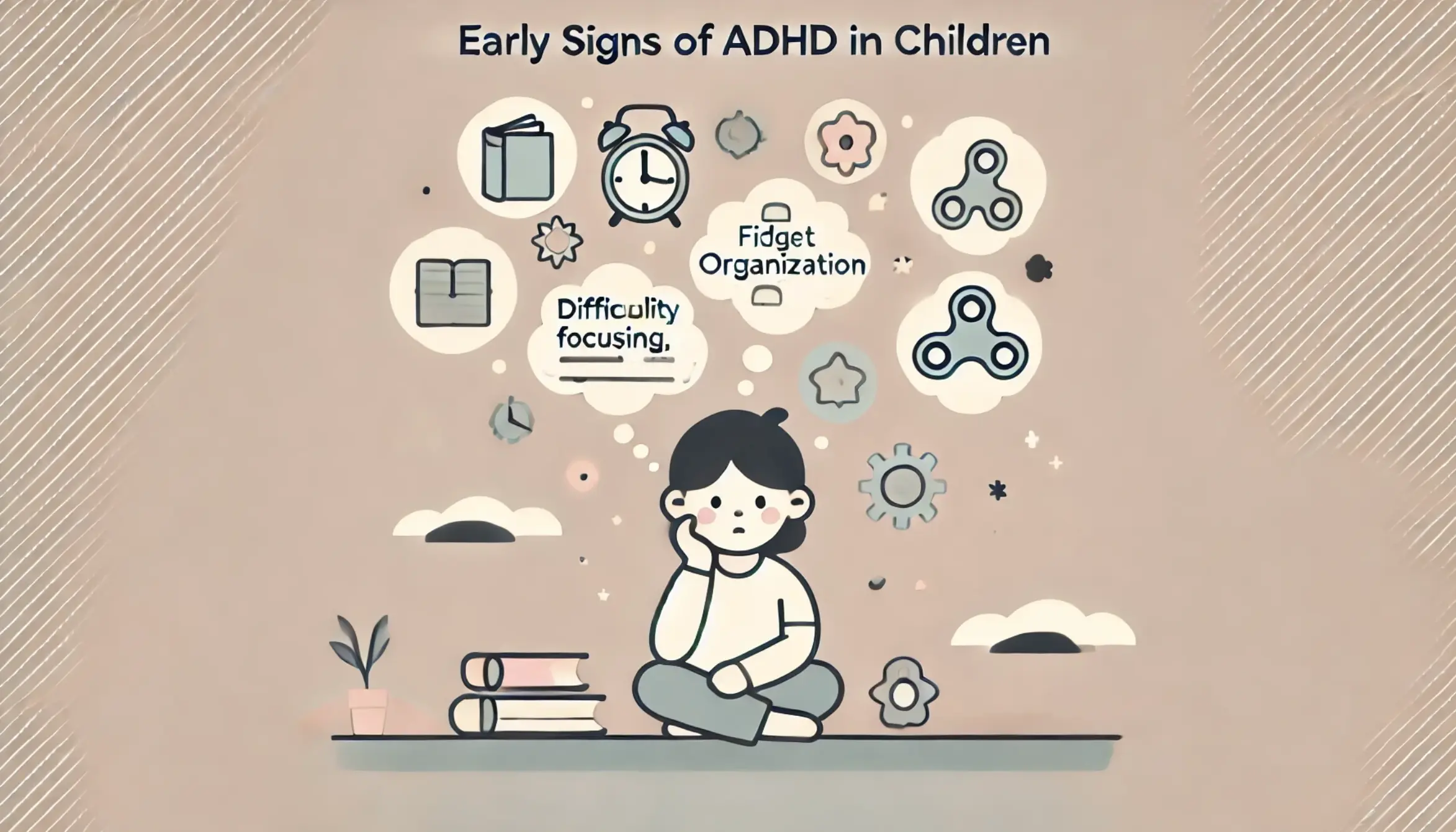Navigating the world as a high-functioning adult with Autism Spectrum Disorder (ASD) can be a uniquely challenging journey, often complicated by the obstacles in obtaining a proper diagnosis. From the ability to camouflage social difficulties to adapt to societal expectations, these individuals often face hurdles in getting the recognition they need. In addition to this, the societal narrative surrounding high-functioning autism often leans towards stereotypes that mainly highlight severe impairments, overshadowing the variety within the spectrum, particularly in high-functioning individuals.
In this blog, we will talk about everything you need to know about high-functioning adults with ASD and the obstacles to getting a diagnosis.
What is High Functioning Autism?

High functioning autism is a term used to describe individuals on the autism spectrum who exhibit cognitive abilities within or above the average range while still experiencing challenges associated with autism. Unlike traditional stereotypes, HFA encompasses diverse individuals with varying strengths and weaknesses in social, communication, and behavioral domains. While these individuals may excel academically or professionally, they often grapple with slight difficulties in social interactions, sensory processing, and flexibility in routines.
Characteristic features of HFA include:
- A preference for routine;
- Intense focus on specific interests;
- Challenges in understanding social cues.
Communication may be formal or personal, with a tendency to interpret language literally. While some individuals with HFA develop coping mechanisms to navigate social situations, they may struggle with the subtleties of non-verbal communication.
Diagnosing high-functioning autism involves comprehensively assessing social communication skills, behavior patterns, and sensory sensitivities. Recognizing the unique strengths and challenges within the high-functioning autism spectrum is crucial for tailoring support and interventions that foster individual growth and well-being.
It is essential to approach HFA with empathy, understanding, and a commitment to promoting inclusivity and acceptance within the broader community.
Obstacles in Diagnosing Autism in High Functioning Adults
Diagnosing highly functional autism poses distinctive challenges due to the subtle and often hidden nature of its symptoms. One primary obstacle is the societal misconception that associates autism exclusively with severe impairments, overlooking the diverse ways it can manifest.
High-functioning adults may develop sophisticated coping mechanisms that mask their social difficulties, making it challenging for clinicians to recognize underlying autistic traits during traditional assessments.
In addition, the diagnostic criteria for ASD may be biased towards identifying more overt symptoms, potentially missing the subtle signs presented by high-functioning individuals. The variability in how ASD manifests across the spectrum further complicates the diagnostic process, as the stereotypical image may not align with the experiences of those who function well in certain aspects of life.
The demand for social conformity and the expectation that adults have outgrown autistic traits further delay diagnosis. Clinicians may attribute subtle social struggles to personality traits or mental health issues rather than recognizing them as potential indicators of autism.
To address these obstacles, there is a growing need for increased awareness, specialized assessments, and a shift in the diagnostic paradigm to embrace the diversity within the autism spectrum, ensuring that high-functioning adults receive accurate and timely diagnoses, leading to appropriate support and understanding.
Autism and Asperger’s
Autism spectrum disorder (ASD) and Asperger’s syndrome are both neurodevelopmental conditions falling under the broader category of autism. While they share common features, there are distinctions between the two. In 2013, the DSM-IV eliminated the presence of disorders which included Asperger’s and Pervasive Developmental Disorder, Not Otherwise Specified to be encompassed within one diagnostic condition of Autism Spectrum Disorder.
ASD is a spectrum encompassing a range of developmental disorders characterized by challenges in social interaction, communication, and repetitive behaviors. It includes various individuals with varying degrees of impairment, from mild to severe.
Asperger’s syndrome, previously considered a distinct diagnosis, is now often regarded as part of the broader ASD spectrum. Individuals with Asperger’s typically exhibit average to above-average intelligence and may have fewer language and cognitive delays compared to others on the spectrum. They often display intense interests and adhere strictly to routines, but their social difficulties can be pronounced.
The key difference lies in language development and cognitive abilities, with Asperger’s traditionally associated with a lack of significant language delays. However, the revised diagnostic criteria in the DSM-5 have eliminated the separate classification of Asperger’s, folding it into the broader ASD category.
In essence, both ASD and Asperger’s represent a diverse spectrum of conditions, emphasizing the need for personalized understanding and support tailored to the unique strengths and challenges of each individual within this neurodevelopmental framework.
Impact of Late Diagnosis

The impact of a late diagnosis of autism spectrum disorder is profound, affecting various aspects of an individual’s life. Late diagnosis often means missed opportunities for early intervention, therapeutic support, and tailored educational strategies during crucial developmental stages.
Social and communication difficulties that may have been misunderstood or attributed to other causes can lead to increased stress, anxiety, depression and challenges in building meaningful relationships.
Late-diagnosed individuals, especially high-functioning adults, may experience relief and validation upon understanding the root cause of their differences. However, the delay in diagnosis can also result in a lifetime of struggling with unrecognized challenges, potentially leading to secondary issues like depression or low self-esteem.
Late diagnosis can impact academic performance in educational settings, as individuals may not have received the appropriate accommodations or support to maximize their potential.
In the workplace, late-diagnosed high functioning autistic people may face difficulties in navigating social dynamics and adapting to the expectations of their environments.
Addressing the impact of late diagnosis involves providing support and interventions tailored to the individual’s needs and fostering awareness within society to recognize and accommodate neurodiversity.
Early detection and understanding are crucial for minimizing the long-term repercussions of a late ASD diagnosis and promoting a more inclusive and supportive environment for individuals across the spectrum.
Diagnosing High-Functioning Autism

Diagnosing high-functioning autism requires a comprehensive and nuanced approach, considering the subtleties of symptoms often exhibited by individuals on the higher-functioning end of the autism spectrum.
One primary challenge lies in the camouflage of social difficulties, as individuals with HFA may develop coping mechanisms that mask their challenges in social interactions.
Clinicians use standardized assessments, including the autism diagnostic observation schedule (ADOS) and the autism diagnostic interview-revised (ADI-R), to evaluate social communication skills, repetitive behaviors, and restricted interests. However, the emphasis on overt behaviors in traditional diagnostic criteria can make identifying the more subtle signs associated with HFA difficult.
The diagnostic process should involve gathering information from various sources, including self-reports, caregiver observations, and historical accounts of social development. Collaboration between healthcare professionals, psychologists, and educators is crucial to comprehensively understanding the individual’s functioning across different settings.
Moreover, it is essential to recognize the variability in HFA presentations, as individuals may excel in certain areas while facing challenges in others.
Tailoring assessments to capture the unique strengths and difficulties of high-functioning individuals is paramount to ensuring accurate diagnoses and facilitating access to appropriate support and interventions. Increasing awareness among healthcare providers and the broader community is essential for promoting the timely and accurate identification of high-functioning autism.
High Functioning Autism Evaluation, Oakland, CA
For a comprehensive evaluation of High-Functioning Autism, consider reaching out to Ability Psychological Services.
Our team is dedicated to providing expert assessments for individuals suspected of having high-functioning autism, ensuring accurate and thorough diagnoses. We have experienced professionals who employ a nuanced approach, utilizing standardized assessments like the ADOS and the autism diagnostic interview-revised (ADI-R). With a commitment to understanding each individual’s unique strengths and challenges, APS offers a tailored evaluation process. Contact us today!





